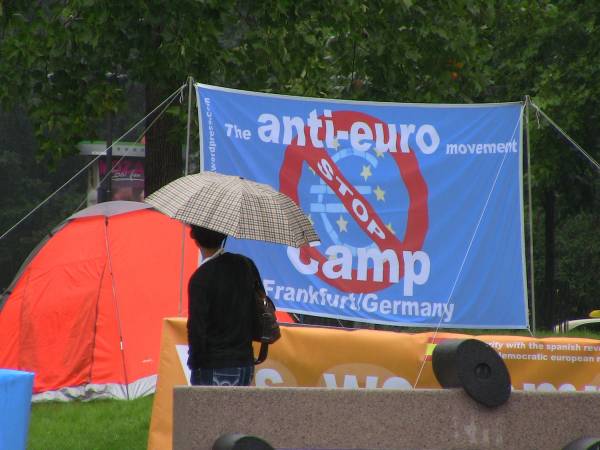Ma 22 Oct: RWE – To Euro or not to Euro
Real World Economics and Transnational Institute debate:
About 15 years ago, in February 1997, a manifest by 70 Dutch economists warned about the untenable structural flaws in the neoliberal design of the Economic and Monetary Union (see http://www.sdnl.nl/emu-1.htm). The manifest particularly criticized the arbitrary nature of the chosen fiscal rules, requiring repeated rounds of austerity measures across Europe, which would result in a gradual dismantling of welfare states, wage stagnation, a sharp rise in unemployment and growing inequality. Politicians, journalists and academics alike ignored these warnings – enthralled by the belief that the large disparities between member economies would somehow miraculously dissolve once the common currency area had been established. Questions about the profoundly undemocratic nature of the European Central Bank and its mandate to keep inflation low at all costs were seldom raised.

Meanwhile, the manifest’s forecasts have become an inconvenient truth. The harsh austerity and privatization policies that accompany the recurring ‘rescue’ packages of the EU and the IMF and the interventions of the ECB seem to only aggravate the crisis. Countries of the periphery such as Greece, Portugal and Spain have entered an ever deeper recession which in terms of its socioeconomic costs only compares to the Great Depression in the 1930s and to periods of war.
This Real World Economics session addresses the important question of whether and how these peripheral countries will survive in the Eurozone. The issue of leaving the euro has troubled social movements of southern European countries over the past two years. At the same time, political elites categorically seem to refute the possibility of a ‘Grexit’, ‘Spexit’, or ‘Italexit’. Invited guest speakers are Marica Frangakis (Nicos Poulantzas Institute), Geert Reuten (UvA, Senator of the SP) and Dimitris Pavlopoulos (VU Amsterdam). Moderated by Rodrigo Fernandez (RWE).